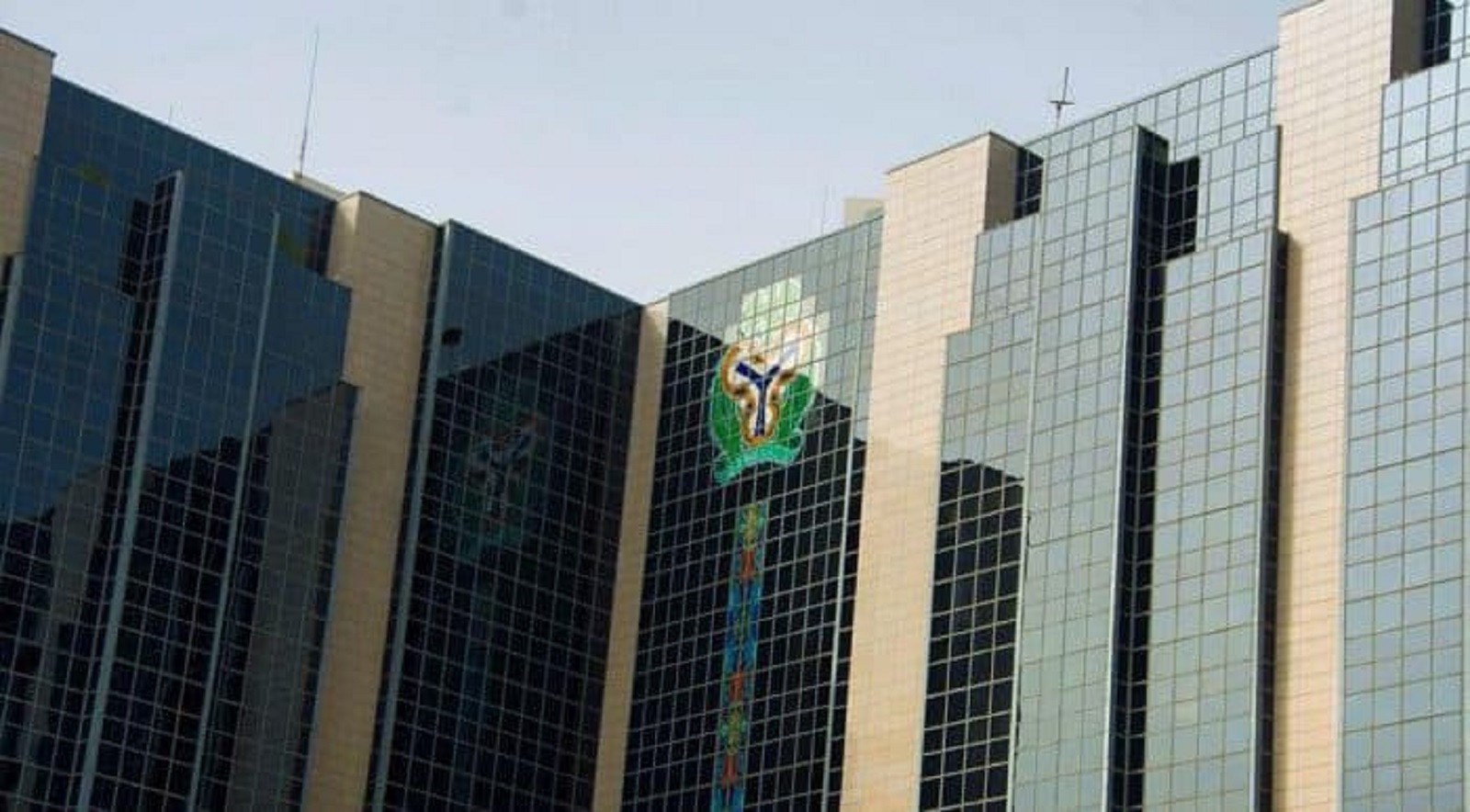CBN has banned banks’ forex speculation in a new circular.
NewsOnline Nigeria reports that the Central Bank of Nigeria (CBN) has released a new circular addressing suspected cases of excessive foreign currency speculation and hoarding from Nigerian banks.
This Nigeria news platform understands that the new circular introduces a set of guidelines aimed at reducing the risks associated with these practices.
ALSO: IOM Partners With FG To Repatriate Stranded Nigerians From Libya
The circular, titled “Harmonisation of Reporting Requirements on Foreign Currency Exposures of Banks,” highlights the CBN’s concerns over the growing trend of banks holding large foreign currency positions.
- “The Central Bank of Nigeria (CBN) has noted with concern the growth in foreign currency exposures of banks through their Net Open Position (NOP). This has created an incentive for banks to hold excess long foreign currency positions, which exposes banks to foreign exchange and other risks. Therefore, to ensure that these risks are well managed and avoid losses that could pose material systemic challenges, the CBN issues the following prudential requirements”
In simple English, the central bank believes some commercial banks hold long-term positions in forex with the hope of profiting from it especially when there are forex fluctuations.
- For example, a bank borrows or buys $ 1 million worth of forex but then holds half of it in its position instead of lending it or using it to finance purchases for its clients immediately.
- What this means is that banks can profit from currency depreciation if they buy the forex low and sell high.
This practice, known as speculation, involves buying or holding foreign currencies in the hope of profiting from fluctuations in exchange rates. However, this behavior can expose banks to significant risks, including exchange rate volatility and potential financial losses.
Optics: Commercial banks in Nigeria have profited massively from forex revaluation gains since 2023.
- As such, most analysts believe some of the banks may be deliberately buying forex and then holding it long enough to sell when it depreciates.
- In some cases, some banks can buy forex from the CBN with plans to sell to customers but they do not sell and instead hold the forex. Once the currency depreciates, they make money.
CBN Guidelines
To address these issues, the CBN has issued prudential requirements that banks must follow. A key focus of these requirements is the management of the Net Open Position (NOP).
- The NOP measures the difference between a bank’s foreign currency assets (what it owns in foreign currencies) and its foreign currency liabilities (what it owes in foreign currencies).
- The circular mandates that the NOP must not exceed 20% short (owning more than owning) or 0% long (owning no more than the bank’s shareholder funds not reduced by losses) of the bank’s shareholders’ funds.
- This calculation must be done using the Gross Aggregate Method, which provides a comprehensive view of the bank’s foreign currency exposure.
- Furthermore, banks with current NOPs exceeding these limits are required to adjust their positions to comply with the new regulations by February 1, 2024.
- Additionally, banks must calculate their daily and monthly NOP and Foreign Currency Trading Position (FCT) using specific templates provided by the CBN.
Other demands
The circular also stipulates that banks should maintain adequate stocks of high-quality liquid foreign assets, such as cash and government securities, in each significant currency.
- “Banks are also required to have adequate stock of high-quality liquid foreign assets, i.e. cash and government securities in each significant currency to cover their maturing foreign currency obligations. In addition, banks should have in place a foreign exchange contingency funding arrangement with other financial institutions.” CBN
These assets are crucial for covering maturing foreign currency obligations. Banks are also advised to have foreign exchange contingency funding arrangements in place with other financial institutions.
On matching and hedging
Other requirements outlined in the circular include practicing natural hedging by borrowing and lending in the same currency to avoid currency mismatch risks.
- “Banks should borrow and lend in the same currency (natural hedging) to avoid currency mismatch associated with foreign currency risk.
- The basis of the interest rate for borrowing should be the same as that of lending i.e. there should be no mismatch in floating and fixed interest rates, to mitigate basis risk associated with foreign borrowing interest rate risk.
- With respect to Eurobonds, any clause of early redemption should be at the instance of the issuer, and approval obtained from the CBN in this regard, even if the bond does not qualify as tier 2 capital. reporting on a timely basis.” CBN
Banks are also advised to ensure that the basis of the interest rate for borrowing matches that of lending, thereby mitigating basis risk associated with foreign borrowing interest rate risk.
What this means
The CBN emphasizes the importance of compliance with these guidelines, warning that non-adherence will result in immediate sanctions and possible suspension from participating in the foreign exchange market.
- This move by the CBN signifies a firm stance against speculative activities in the banking sector, aiming to safeguard the financial system and promote economic stability.
- If the intent of the circular works, banks will be expected to liquidate their net long positions, effectively selling forex into the market.
- This could provide an immediate reprieve for the forex market and may trigger currency appreciation.
Download the circular here Circular on Foreign Currency Exposure of Banks
